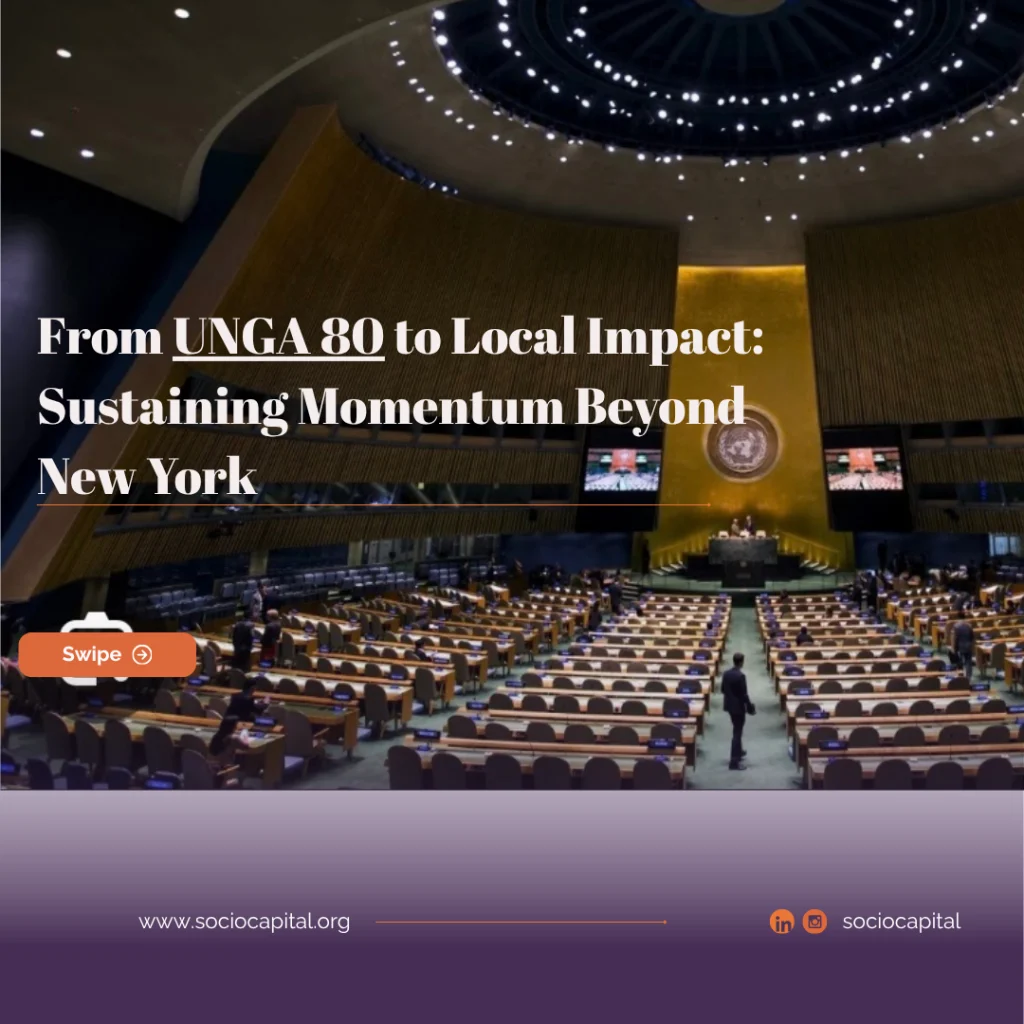
The global stage of the United Nations General Assembly (UNGA) often shines bright with declarations of hope, promises of reform, and commitments to shared action. UNGA 80 was no exception. Leaders, large and small, spoke with urgency about justice, accountability, and the need for systems that deliver. But the question that always follows is this: how do we ensure that the momentum from New York carries into communities across Africa and beyond?
Sierra Leone’s President, Julius Maada Bio, offered a reminder that leadership is not about size or volume but about clarity of purpose. In his words: “Small states are not inherently small. Our sovereignty is equal, and our responsibilities are the same. Leadership is not the loudest voice in the room. It is the clearest voice for justice.” His framing resonates deeply for countries and institutions navigating complex systems change. It highlights that impact does not depend on scale alone, but on clarity of values and commitment to justice.
Yet, even with strong commitments, sustaining momentum requires accountability. King Felipe VI of Spain underscored this in his intervention, noting that: “Rules shape behaviors to which the vast majority of international actors adhere. Even when they are breached, they provide a basis for accountability and enforcement. Rules are the voice of reason used in international relations.” For those of us working to translate global declarations into practical local action, this reflects a critical point: systems endure when there are frameworks that encourage accountability, whether in health, governance, or climate.
And then there was a sharper reminder from Estonia’s President, Alar Karis: “Brutality prevails. We simply cannot let this go on.” While his words addressed geopolitical conflicts, they echo across development spaces too. Brutality may not always wear the face of war; it can appear as failing health systems, inequitable access to education, or communities excluded from decision-making. Leadership, therefore, is not just about making promises at UNGA, but about having the courage to confront and correct injustices wherever they manifest.
For practitioners, policymakers, and partners, these interventions hold a simple truth: declarations alone do not transform systems. Sustaining momentum means embedding commitments into operational plans, aligning them with local realities, and ensuring that communities are not passive recipients but active shapers of change.
At Sociocapital, we see this as our mandate. Our work across health, leadership, and partnerships is rooted in ensuring that global commitments are not left on international podiums but translated into lasting outcomes for communities. We believe sustainability comes from building resilient systems, amplifying local ownership, and strengthening partnerships that deliver impact beyond the headlines.
As the conversations from New York fade, the responsibility shifts to us: to carry forward the lessons of UNGA 80, to strengthen partnerships that outlast conferences, and to ensure that impact is measured not in speeches, but in improved lives.


